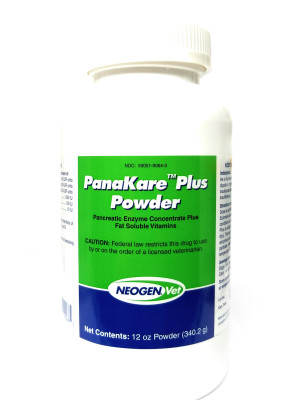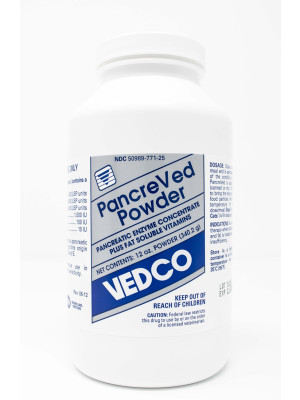Most pet parents, that have a pet with EPI, begin the diagnosing office visit by first reassuring me that although their dog looks like it is starving to death they feed their pet regularly and that their pet could eat them out of house and home.
After determining what their pet has, I usually hear….
My pet has what? Say that again….
Exocrine Pancreatic Insufficiency also known as EPI.
Second response usually is…
A disease, I thought he had worms!
What is EPI?
Exocrine Pancreatic insufficiency basically means that your dog's pancreas is not producing sufficient pancreatic enzymes. Pancreatic enzymes help digest food. Essentially your dog is not digesting the food they eat. Or more exactly the proteins, starches, and fats in their food cannot be digested or broken down into small enough pieces to be absorbed by the body. The nutritional value of their food, is not absorbed and is passed out in their poop. Their poop typically becomes a golden color and has a fatty appearance. Your pet will also experience more gas than usual and have extreme weight loss.
By the time most pets show symptoms close to 90% of the pancreas has been destroyed. Early detection can be a life saver. We will discuss in more detail the signs and symptoms of EPI in the section called How do you Know.
How serious is EPI?
Understanding that your pet receives very little nutritional value from their food will explain why they are constantly hungry. An affected dog, without treatment, literally starves to death even though it may be constantly eating.
How did my dog get EPI?
Did something cause this or is it Genetic?
The answer is….both are correct.
One of the causes of EPI is Chronic Pancreatitis or inflammation of the pancreas.
Pancreatitis can be caused by the ingestion of large amounts of highly fatty foods, toxins or caused by infection. Pancreatitis results in the pancreas becoming inflamed causing digestive enzymes that are normally inactive until they reach the small intestine to become activated in the pancreas. These activated digestive enzymes in the pancreas result in pain and swelling as the pancreas actually begins to digest itself. Dogs with chronic pancreatitis essentially have multiple attacks of acute pancreatitis.
A second cause of EPI is the fact that in some young animals (usually less than two years of age), the cells of the pancreas just start decreasing in number and functioning. The cause for this is unknown, but it may be an inherited condition. Many different dog breeds can be affected, however, it is more common in large breeds, especially German Shepherds. But it can also occur in these dog breeds that are prone to Pancreatitis:
Miniature schnauzers, miniature poodles, and cocker spaniels.
Additionally, EPI can result from chronic pancreatitis in pets that are older and pets that are overweight.











